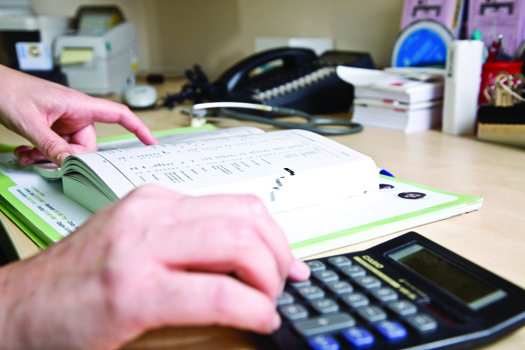My partnership pays tax bills on behalf of all of the partners. I would prefer to pay my own tax, to offset my mortgage for part of the year, but the others are not keen. What should I do?

Senior partner: ‘You don’t all have to do the same thing’
There are no downsides for any of the partners if one or more of you take your drawings gross rather than net of tax. Our practice has been doing this for at least 10 years. Two of us take our drawings gross and the other two prefer to leave the practice manager to pay their tax.
One advantage of taking drawings gross is that you can offset your mortgage while you are waiting to pay your tax. This is effectively the best interest available as your mortgage is likely to be at least 4%, and no savings accounts currently provide anywhere near that level.
If you decide to take this route, you can explain the process, have an open discussion and reassure your partners and practice manager that you will individually be responsible for paying your tax bill. You all need to agree how much to leave in the practice account as working capital, and ensure that taking gross drawings does not leave the practice with too little.
Your partners may want to ensure all the accounts are above board and know everyone’s tax is paid appropriately. This should not rock the boat; a successful partnership requires high levels of trust between individuals and you are all in it together in much bigger ways.
In practice, it means partners paying tax individually must set aside a fixed amount every month, based on the projected tax liability. Our accountants provide an estimate for each six-month tax period. You will receive an exact amount when the tax bill arrives. The accountants will also adjust how the tax is shown in the accounts. In terms of paying the tax yourself, it is easy. You can pay online, on the phone or by cheque.
Dr Fiona Cornish is a GP partner in Cambridge

New partner: ‘Explore why they’re sticking to their old ways’
In the past, partners were liable for each other’s tax debts, and practices therefore protected themselves by holding back a tax reserve. But partners have not been jointly and severally liable for self-assessed tax on partnership profits since 1996/97. Despite this, many continue to operate the old way.
The benefit of taking drawings gross of tax is clear, leaving individuals free to use the money however they want. As well as using this to offset a mortgage, it could, for example, be invested or negate the need for a short-term loan.
However, it is worth remembering that retaining a practice-wide reserve protects individual partners from unexpectedly large bills. Such practices are also more likely to pay fees for medical defence, the BMA, the GMC and so on in advance of drawings. Having these costs withheld up front helps with day-to-day household budgeting.
I moved from a practice operating a tax reserve to one with gross drawings two years ago. I held back monies for tax in a separate account, but my first tax bill was 50% more than the accountants had predicted, mainly because of an increase in partnership profit. This wiped out my cash savings as well as my personal tax reserve, leaving a lean budget for our family summer holiday.
If you are set on paying tax individually and your partnership agreement specifies that drawings are paid net, you will need to get your partners to make an exception. Seek the view of your practice accountant. Then have an open discussion and explore whether the existing arrangement is due to a previous bad experience, or simply custom and practice.
At the end of the day it depends whether you are a socialist at heart wanting to share financial risk across the partnership, or a capitalist with every partner individually left to sink or swim.
Dr Grant Ingrams is a GP partner in Leicester

Finance expert view: ‘Put it into your practice agreement’
This is a situation we see on a regular basis and there is no right or wrong answer. It comes down to personal preference and how the partners want to settle their tax bills. Some GPs are very hands on about managing their finances while others are happy to leave it to someone else.
There are advantages and disadvantages to having the partnership take care of tax arrangements. The main advantage is that everything is dealt with centrally, so there is little for the partners to worry about. However, the money pooled for partners’ tax bills will probably be sitting in a practice account earning little or no interest.
In this scenario, the GP is well within their rights to decide to pay their own tax bill. Nevertheless, it is best practice to get the agreement of the other partners first and to have it written into the practice agreement so that everyone knows where they stand.
If the partners agree, it’s important to take financial advice. A GP settling their own tax affairs will face a tax bill twice a year, so will need to forecast them and put enough money aside.
If done correctly, using money put aside to offset against mortgage repayments could save a significant amount in mortgage interest over the course of a year, and help reduce the mortgage term. It is also worth seeking financial advice to ensure the best mortgage deal is in place.
David Sullivan is a financial consultant at Wesleyan
Pulse October survey
Take our July 2025 survey to potentially win £1.000 worth of tokens













